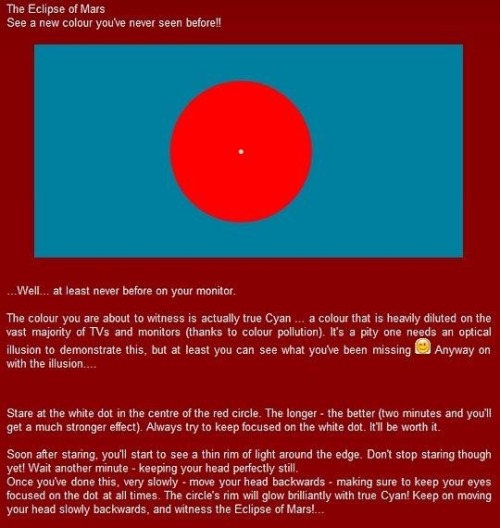Many People Have Tried To Attribute My Thirst For Knowledge As Ti Based, But I Am Fairly Confident That
Many people have tried to attribute my thirst for knowledge as Ti based, but I am fairly confident that I am an INFP. Would you say that my thirst for knowledge and curiosity relates more to my Ne and needing to understand multiple perspectives? And would you say that is a common error some people make with typing based of stereotypical factors, thinking they are Ti just because they like researching/understanding things fully when that's not really how they reach conclusions?
It’s a common misconception and a common reason why Ns mistype. “Thirst for knowledge” is easily misconstrued when one does not consider the REASON or motivation behind it, and you must understand cognitive motivation to identify functions correctly. In everyday speech, the phrase carries the connotation of someone who likes to learn for the sake of learning or someone who is intellectually curious for the sake of valuing knowledge in itself -> this is NOT Ti. Ti is a judging function that systematizes information, not a data gathering function, it wants to construct unambiguous and fact-based judgments about the world, it wants to create very elegant and precise rules and principles on which to make confident, independent decisions. Therefore, Ti wants to “figure something out” but not for the sake of “just knowing”, rather, the purpose is very specific in wanting a very particular framework of knowledge to navigate particular situations with confidence.
“Thirst for knowledge” is more likely to arise from the intuitive functions because they are data gathering perceiving functions. Ns are more likely or have a greater urge than Ss to thirst for knowledge because they value knowledge that goes beyond what is readily known. Therefore, INFPs and INTPs both tend to have a thirst for knowledge because of high Ne, INPs tend to be more intellectually curious than ISPs. And Ti dom descriptions are often skewed towards INTPs. STPs can be intellectually curious but they are usually more focused in their interests (Ni) and concrete in terms of wanting to build up a physical, practical, or hands-on skill/ability (Se). High N functions often force people into being what appears to be “analytical” because they flood the the mind with so much abstract information that one is often forced to sort through it, however, it is the judging functions that do the actual sorting and analyzing, even though perceiving and judging functions often feel like they work seamlessly together, especially when both are pointed in the same i/e direction. When Ns read the Ti description, they wrongly assume that wanting to “figure out how something works” means the same thing as “thirst for knowledge” because that’s how they want to interpret it for themselves. NFs are often unconsciously insecure about feeling intellectually inferior, so when they read the Ti description, they want it to fit and even twist it to fit. NFJs in particular often confuse Ni and Ti (I think almost every week I get at least one NFJ who believes they are T).
More Posts from Possiblyfromorion and Others





The Human Microbiome Reimagined as a Cut-Paper Coral Reef by Rogan Brown


Cognitive Functions Metaphors
Ne is like time and space within itself, with so many possible timelines in existence.
Ni is like a weather forecasting stone, because it can just feel and tell what’s about to happen.
Se is like a camera, because it records everything around it and takes it in fully, every single detail.
Si is like a calculator, because it has all the info it needs to know stored within it, it remembers.
Fe is like a hospital, because it cares for those who are hurt, and fulfills their every need, and forgets about its own needs because it’s busy with others.
Fi is like a compass, because it leads us to the true and correct direction we should follow to stay true.
Te is like an office, because it’s organized and lets everyone know what needs to be done to get things done accomplished accordingly.
Ti is like a science lab, because once the experiments are conducted, it can analyze the results well.
🤔




![Mulan: ISTP [Disney’s Mulan]](https://64.media.tumblr.com/db5115da097842a8be82f187cb1a1b29/tumblr_or4wvry0sr1tiyvnio4_400.png)
![Mulan: ISTP [Disney’s Mulan]](https://64.media.tumblr.com/9c83d758b68dcab88c57ee33991c70f2/tumblr_or4wvry0sr1tiyvnio2_400.png)
![Mulan: ISTP [Disney’s Mulan]](https://64.media.tumblr.com/43bec3ac61dc0bc17d2069b6eee4dd4b/tumblr_or4wvry0sr1tiyvnio3_400.png)
![Mulan: ISTP [Disney’s Mulan]](https://64.media.tumblr.com/d9d474e852fef89581102a0258992da0/tumblr_or4wvry0sr1tiyvnio5_400.png)
Mulan: ISTP [Disney’s Mulan]
Dominant Introverted Thinking (Ti): Mulan is fiercely independent and inventive. She constructs more efficient ways to do all of her chores, finds ways to defeat obstacles during training, finds a way to beat the Huns on the mountain, and devises a way to finally defeat Shan Yu. Ti is a very hands-on function. When dominant, the ITP only enjoys things that relate their Ti. For Mulan this is when she gets technical and devises new strategies. She isn’t a planner nor works step-by-step (Te). She prefers to be more open ended in her logic.
Mulan lights up when involved in any task that demands her Ti, but as soon as it doesn’t you can’t force her to put in the same amount of effort. Becoming the perfect bride is doesn’t appeal to her Ti, so we see her try to slide by and her disinterest is incredibly clear.
Secondary Extraverted Sensation (Se): Mulan is incredibly present oriented. She doesn’t care for the past, learning from old experiences or traditions, nor is she looking towards the future. She doesn’t have some goal out in the future. Her father is being sent out to war and will most likely die. She immediately adapts to that current situation without thinking of the long term consequences. She knows it will stop her father from going to war, consequences be damned.
Her ability to be in the moment and so observant of her external environment is what makes her such a great soldier. She notices details that others don’t in her environment and when paired with her Ti logic, she becomes the best strategist among all of the other soldiers.
Tertiary Introverted iNtuition (Ni): Ni being inward facing pairs with Ti. We see this with Mulan when she analyzes her own Ti. It leads her to reflect on her own personal meaning, her identity. This is how we get the song “Reflection.” She hasn’t found a craft or occupation to hone her Ti and it goes beyond her feeling of displacement from society. She doesn’t know who she is, because she isn’t allowed to engage in her dominant function. Ni helps her question this inability to be herself in the abstract. She needs to gather more Se experiences in order to answer the questions about herself, which she does engage in when she goes off to war.
Inferior Extraverted Feeling (Fe): Mulan is oblivious to the social decorum around her. She doesn’t understand the female role she is supposed to play in her society. She can’t even fake it in order to adapt and survive within the role society has pushed on her. But she also doesn’t have an active interest in changing these social conditions. It isn’t a mode of judgment she is comfortable working with. Acknowledging the social current isn’t her style.
She often ignores any social consequences to her actions. She doesn’t go out to war considering what this means for her role as a daughter and a woman or what it means for her father what his role in society is. She doesn’t consider the worry and the family disruption she causes in leaving her home.
We see her lack of Fe understanding when she is around the men as well. Instead of blending in when she tries to be a Man, she still doesn’t understand the role of being a Man. She doesn’t understand any of their social rituals, nor does she really try. She sticks to isolating herself, because when she tries to join she is always very close to being caught.
With these changes, other things have had to be edited.
Disney Female MBTI Grapic Link
Disney Female MBTI Chart Link
“Trying to maintain a pleasant state and avoid an unpleasant state is actually the cause of sorrow. When you stop resisting, you see that what seems frightening is actually the absolute beauty of reality. When you see that everything is a momentary display of reality, then you stop resisting it. Resistance hurts, only every single time. Love is the state of nonresistance.”
— Adyashanti






#chris evans #in where he is actually steve rogers

Maxwell has anger management issues
Inert vs. Contact Subtype in a Nutshell
I felt this is useful information that should be more known, so I decided try to dessiminate it myself.
Guardians
ISTJ:
ISTJ-Si: Courteous, professional, appreciator of comforts, lowkey individualistic
ISTJ-Te: Industrious, severe, impatient, very resourceful within their area of expertise
The latter is apparently rarer and occassionally mistypes as INTJ. I presume the former’s orientation toward comforts can completely turn around/express itself differently depending on enneagram.
ISFJ:
ISFJ-Si: Measured, considerate, unhurried, mildly inquisitive Can be artsy.
ISFJ-Fe: Lively, friendly, upbeat, sociable, tiny bit cheeky.
Basically elegant vs adorable.
ESTJ:
ESTJ-Te: Serious, straightforward, more taciturn, courageous; Can be strict or have no chill
ESTJ-Si: Enthusiastic, sociable, hospitable, a lot more expressive, does have chill but can be pushy
The stereotype is ovsly more inspired by the former; The descriptions of the former sound somewhat unflattering, but theoretically, they’d have better acess to their Ne, so there’s that.
ESFJ:
ESFJ-Fe: Very expressive & social but also temperamental, wears more “attractive” clothes, can be a bit scattered, opinionated
ESFJ-Si: More plain but also more practical & dilligent; Lively, charming and helpful, can tend to overwork themselves
The popular stereotype is the former, the descriptions on internet profiles more the latter.
Artisans
ESFP:
ESFP-Se: Proactive, energetic, confident, assertive, can be dramatic, leader material
ESFP-Fi: Charming, team worker, pragmatist, likes having the newest & shiniest toys, not quite as risk-taking
The stereotype is ostensibly more based on the latter. More ppl should remember the former exists before declaring ambiguous cases as ESTP or ENFP.
ESTP:
ESTP-Se: Basically the commonly known “flashy clever bastard” version; Forget the “clever” part at your own risk. Snarky, charming & strong-willed with a soft spot for their favorite people
ESTP-Ti: Much more low-key in clothing & demeanor, collected, suspicious & skeptical, good with business stuff, cunning behind-the-scenes-y person but notices everything that happens around them
The latter could be mistaken for introvert, or even an intuitive if someone’s going purely by stereotypes. Chances are they’ll have more pronounced Ti-ish speech patterns & expressions.
ISFP:
ISFP-Fi: modest, gentle, caring, well-mannered, sensitive, can be shy & dislikes to impose, but firm & critical about principles, very perceptive of ppl’s behavior
ISFP-Se: Tough, fortright, blunt, venturesome and vigilant and adaptable, impressive death glare.
Gentle Flower Child vs. fierce independent adventurer. Descriptions are usually one or the other, leaving at least one half of them miffed. The former can be mistaken for ISFJ, the latter for an extrovert.
ISTP:
ISTP-Ti: Very discerning & autonomous, likes some degree of preparation, stoic & preseverant, modest & unpretentious but can also be friendly & attentive
ISTP-Se: More restless, gusty & impulsive, though more outwardly courteous & communicative as well, perhaps more sportsy & stylish, bit more sociable
All the “badass vigilante” or “hardcore hobby person” stereotypes sort of reference the former. The latter seems like that stereotypical super chill male friend. (or tomboyish soccer girl.)
(Boy, does socionics as a whole ever have a crush on SPs. If you’re tired of descriptions that were obviously written by NPs, read these ones.)
Diplomats
ENFP:
ENFP-Ne: Super dreamy & outwardly carefree, frequently bookish, maybe a bit more scattered, can alternate between shy & cheerful, chill & energetic, more colorful clothes, forgiving (to an extent), tries to be friendly & understanding toward everybody
ENFP-Fi: Independent, original & artsy. Prefers to work directly with people, (unlike the other subtype), determined clever & purposeful, energetic & sociable, earthy & comfy but still original clothes. Adventurous, romantic, maybe a tad self-critical
The stereotype seems based on the latter. I’ve read somewhere that the former can have sciencey inclinations, and maybe be closer to ENTPs in some respects, though the presence of Fi ultimately makes for a marked difference.
INFP:
INFP-Fi: Polite, quiet, firm, very serious, very introvertey; Insightful but private about it. Clothing can be minimalistic or reflect inner thoughts somehow (music subculture etc.)
INFP-Ne: Reserved in public but diplomatic & mentor-like in private, bit more openly friendly or dreamy, tends to have a mischievous sense of humor in the manner of other NPs. Modest & unassuming clothes.
The usual stereotype is very specifically a sx/sp 4w5 base subtype individual, and not a particularly well-adjusted one at that.
ENFJ-Fe: More moody/passionate, dramatic or flashy, also decisive & a good speaker, very initiative & inclined to solve other’s problems with advice, but can be perceived meddlesome, wants to be seen as serious & respectable and might agonize over responsibility.
ENFJ-Ni: More reflective, deliberate/purposeful, very sociable in a inquisitive sort of way, boundless interest in people, eloquent & good at “selling” their ideas & beliefs or describing feelings in a detailed distinctive manner, can have a more latent kind of temper
“Hero” vs. “Teacher”. Stereotype wise I can’t so much discern a general tendency. Interestingly & perhaps amusingly, the descriptions suggest either variety is very creative with their clothing.
INFJ:
INFJ-Ni: Quiet, dreamy & contemplative, romantic & melancholic, significantly more withdrawn & observer-like
INFJ-Fe: Artistic & charming, more socially involved, very persuasive & excellent at picking up & shifting the mood around them, can come off somewhat bohemian & have surprisingly good crisis reactions.
The former can mistake themselves for NTPs or INFPs, the latter could be confused with extroverts.
Rationals
ENTJ:
ENTJ-Te: Less expressive, decisive & forward despite a tendency to think & reflect, quick to abruptly spring into action, serious & dignified, persistent & tenacious, not that extroverted, values honesty, bit more pragmatic & cautious
ENTJ-Ni: Bold & charming with a well-developed sense of humor, good sense for opportunities, naturally constructs plans that are far-reaching yet concrete, bit wider interests, ponders the big questions
I wonder how this correlates with wether they’re 8s, 3s or 1s.
INTJ:
INTJ-Ni: Way more lowkey in terms of ambitions, spends much time with contemplation & reading, calm, reserved & distanced, can be grumbly, reserved lifestyle, small & stable circle of friends, well-developed imagination, less confident
INTJ-Te: Ambitious, tries to improve on/ methodical about everything, dislikes inefficiency, good at forming wide circle business connections, tries to be knowledgeable on a variety of issues & shows creativity in practical matters
Again, here the stereotype is pretty specifically a Te-subtype 5w6, making it a bit harder to identify the base subtype ones, even more so if they’re one of the rarer enneagram combinations.
ENTP:
ENTP-Ne: Very curious about all manner of unusual topics, has a certain childlike naivity & helpfulness about them, loves to share exciting discoveries with others, tends to be more scattered but can be thorough when they find something they’re truly passionate about
ENTP-Ti: More savy & self-assured, but can come off sharp & inconsiderate at times. Can be impatient. Vigorous, strategic Debater, good a turning vague ideas into workable plans, could be leader material
The “trololol” Stereotype seems like an exaggeration of the latter variety. The former seems almost too cute to exist but I think I’ve encountered a few examples.
And last but not least: INTP!
INTP-Ti: Calm, serious & uncompromising, remains silent and austere if uninterested, correct, proper & strict, dislikes leghty discourse. Erudite & specialized, frequently math-y, more persistent, hard-working & meticulous
INTP-Ne: More into breadth of knowledge, creative, soft, funny & excitable when in the right mood but also a lot more scattered & procrastinatey, rarely as absolute in statements, but very much in action, can be stuborn.
The former seems more represented in descriptions whereas the latter seems more frequent on tumblr. I am an example of this… (^^°)
—
Incidentally, this (along with enneagram-related variations) probably contributes to varying degrees/shadings of introversion vs extroversion (”social introverts”, “introspective extroverts”, introverts who present with fairly forward personalities in private etc.)
You can do further reading here or here to determine which one you or your aquaintances are, it gets pretty detailed complete with body language. Also, here’s some theory behind it;
The Tl;Dr of that article is (as far as I get it) basically that for brain science reasons, there’s either a positive or negative feedback reaction when you use your 1st 2 functions, resulting in a slight emphasis of all other odd- or even numbered functions, and that this is why there is such a thing as an unusually sciencey ENFP, also why some ppl might actually be better at their role function than their tertiary. (For what little good that does.)
Feel free to tag/post which one you are or something.
As usual corrections & additions by actual experts are always appreciated.
-
 melaningentleman liked this · 5 months ago
melaningentleman liked this · 5 months ago -
 beqqq liked this · 8 months ago
beqqq liked this · 8 months ago -
 fungifear liked this · 9 months ago
fungifear liked this · 9 months ago -
 ten-of-imps reblogged this · 10 months ago
ten-of-imps reblogged this · 10 months ago -
 ionicphantom liked this · 1 year ago
ionicphantom liked this · 1 year ago -
 constellatess liked this · 1 year ago
constellatess liked this · 1 year ago -
 purpleparagon liked this · 1 year ago
purpleparagon liked this · 1 year ago -
 omimaro liked this · 1 year ago
omimaro liked this · 1 year ago -
 wingedfacebouquet liked this · 1 year ago
wingedfacebouquet liked this · 1 year ago -
 theunbelievableinventor liked this · 1 year ago
theunbelievableinventor liked this · 1 year ago -
 qav liked this · 1 year ago
qav liked this · 1 year ago -
 gesamtschule reblogged this · 1 year ago
gesamtschule reblogged this · 1 year ago -
 theabyssqueen liked this · 1 year ago
theabyssqueen liked this · 1 year ago -
 morbidlypunny liked this · 2 years ago
morbidlypunny liked this · 2 years ago -
 puppy-love-over-cat-personality liked this · 2 years ago
puppy-love-over-cat-personality liked this · 2 years ago -
 insanemoonfish liked this · 2 years ago
insanemoonfish liked this · 2 years ago -
 starliyuu liked this · 2 years ago
starliyuu liked this · 2 years ago -
 insufflate liked this · 2 years ago
insufflate liked this · 2 years ago -
 nicotheangel17 liked this · 3 years ago
nicotheangel17 liked this · 3 years ago -
 johnbog liked this · 3 years ago
johnbog liked this · 3 years ago -
 mrpinkster liked this · 3 years ago
mrpinkster liked this · 3 years ago -
 icewindandboringhorror liked this · 3 years ago
icewindandboringhorror liked this · 3 years ago -
 pensieromancino liked this · 3 years ago
pensieromancino liked this · 3 years ago -
 penguinrio liked this · 3 years ago
penguinrio liked this · 3 years ago -
 snowflakes-and-crystals reblogged this · 3 years ago
snowflakes-and-crystals reblogged this · 3 years ago -
 likemagicandfireworks liked this · 3 years ago
likemagicandfireworks liked this · 3 years ago -
 weirdmageddon liked this · 3 years ago
weirdmageddon liked this · 3 years ago -
 singlebigsigh liked this · 3 years ago
singlebigsigh liked this · 3 years ago -
 kirishimas-wife liked this · 4 years ago
kirishimas-wife liked this · 4 years ago -
 nemurimuu liked this · 4 years ago
nemurimuu liked this · 4 years ago -
 tapelex liked this · 4 years ago
tapelex liked this · 4 years ago -
 mari-sunderland liked this · 4 years ago
mari-sunderland liked this · 4 years ago -
 softredvelvet liked this · 4 years ago
softredvelvet liked this · 4 years ago -
 serendipitydonuts liked this · 4 years ago
serendipitydonuts liked this · 4 years ago -
 trichiales liked this · 4 years ago
trichiales liked this · 4 years ago -
 paladin742 liked this · 4 years ago
paladin742 liked this · 4 years ago -
 ph3n0lphthalein liked this · 5 years ago
ph3n0lphthalein liked this · 5 years ago -
 alexavier-cat reblogged this · 5 years ago
alexavier-cat reblogged this · 5 years ago -
 alexavier-cat liked this · 5 years ago
alexavier-cat liked this · 5 years ago -
 bluesapphireyes liked this · 5 years ago
bluesapphireyes liked this · 5 years ago -
 ephemeral-lycoris reblogged this · 5 years ago
ephemeral-lycoris reblogged this · 5 years ago -
 ephemeral-lycoris liked this · 5 years ago
ephemeral-lycoris liked this · 5 years ago -
 ni-fi-ti-loopin reblogged this · 5 years ago
ni-fi-ti-loopin reblogged this · 5 years ago
